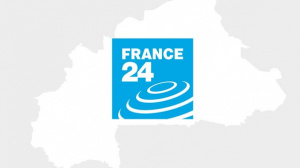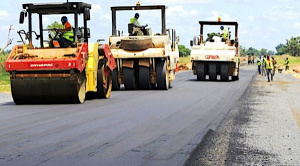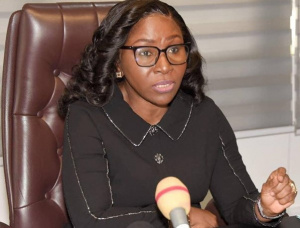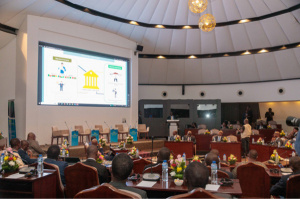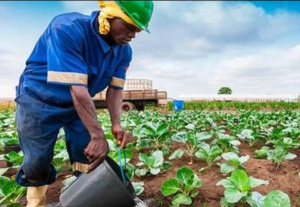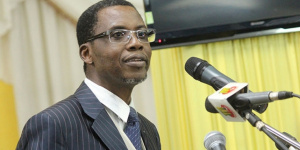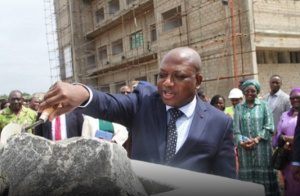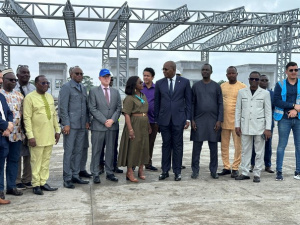Togo First
Togo Media Regulator Issues Formal Notice to France 24 Over Hospital Report
Togo's media regulatory body, the Haute Autorité de l'Audiovisuel et de la Communication (HAAC), has sent a "last formal notice" to the French news channel, France 24. The Togolese entity accuses France 24 of "inequitable treatment of information and the dissemination of false news". The claim concerns a story covering maternities at the Sylvanus Olympio Hospital.
According to a letter that the HAAC addressed to France 24’s managing director, the report is titled "Maternities Amidst Medical Staff Shortage”. The regulator claims the media shot its report "without authorization from the hospital's management" and "did not take any steps to gather the CHU.SO management's version to confront the facts reported in the report". Now, the HAAC wants the report corrected within 7 days.
This is the second time the HAAC has issued a formal notice to an international media. Last May, Radio France Internationale (RFI) was also served with a formal notice for "broadcasting false news".
Esaïe Edoh
Togo: BOAD Backs Road Construction Project in Northeast with CFA30 Billion
The West African Development Bank (BOAD) has approved a CFA30 billion facility to help develop and asphalt the Tchaasémondè - Gandé - Agbang road, in the northeast of Togo. The Bank disclosed the news on June 27, just after its 142nd board meeting.
The construction project aims to ease access to this part of Togo while boosting economic, social, and cultural exchanges at the local and regional levels, especially with the Republic of Benin.
The project is expected to create some 4,200 direct and indirect jobs. Also, Togolese authorities claim it will help slash accidents by 80% on the axis.
Besides this project, the BOAD also approved another CFA30 billion financing for the Agri-Food Processing Project (PTA).
Overall, during the meeting, the Bank allocated CFA162 billion in new financing to support WAEMU countries.
Ayi Renaud Dossavi
Togo: BOAD Approves CFA30 Billion Additional Financing for Agropole Project
The West African Development Bank (BOAD) approved yesterday, June 27, a CFA30 facility to support the second phase of the Togo Agri-Food Transformation Project (PTA-Togo). This project aims to boost agriculture and reduce dependence on food imports in Togo.
The new funding will build on the success of the project's first phase, focusing on increasing the production of rice, corn, soy, sesame, broiler chicken, and cashew nuts. BOAD had already invested CFA10 billion in the project in 2018 and this new package will, according to the provider, be the key to accelerating Togo's agricultural transformation and boosting food security.
The project is expected to benefit around 800,000 people, with women making up 50% of the beneficiaries, while improving access to basic services–providing 10,000 people with drinking water and electricity. The project also includes building 10 agricultural processing centers or “agropoles”, the first being the Kara Agropole.
PTA-Togo aims to promote inclusive agricultural growth, create jobs, attract private investment in key agro-industrial sectors, enhance Togo’s agricultural infrastructure, and support small-scale farmers and agribusinesses.
The project was initially expected to cost CFA77 billion to develop. The African Development Bank (ADB) supports the project with $79.5 million, including grants and loans to improve agricultural infrastructure. The Nigeria Special Fund (NSF) has provided $5.6 million, and the Saemaul Globalization Foundation has contributed $5 million.
Launched in 2018, the PTA-Togo project is overseen by the Agence de Promotion et de Développement des Agropoles au Togo (APRODAT). The project was, however, delayed due to slow private investment.
Fiacre E. Kakpo
Togo: MSMEs Generate 75% of Jobs in Private Sector
Micro, small, and medium-sized enterprises (MSMEs) generate 75% of private sector jobs in Togo. Minister of Trade, Kayi Mivedor, disclosed the figure on June 27, 2024.
Mivedor also noted that MSMEs “have been at the heart of the government’s action for many decades.” The official spoke on the sidelines of the MSMEs Day.
MSMEs make up over 90% of Togo’s economic landscape. They contribute 40% of its GDP and provide 60% of jobs.
Given their importance, the government constantly ramps up efforts to support MSMEs. For example, Lomé has adopted an MSME charter to provide these businesses with tailored support. The authorities have also created a national agency dedicated to MSMEs’ growth and coordination.
Esaïe Edoh
Togo: Ministry of Investment Works on New Business Viability Report
Togo’s Ministry of Investment prepares a report on business viability at the country level. The new study is similar to an already-released study covering the 2015-2020 period.
A workshop was recently held to review and validate the new report’s draft. The meeting gathered several stakeholders, including members of the Business Climate Cell, the President Cell for Key Projects Monitoring, the Ministry of Trade, the Ministry of Economy, the State Secretary in charge of Financial Inclusion, and representatives of the private sector.
#InvestInTogo
— Ministère de la Promotion de l’Investissement (@Promo_InvestTg) June 27, 2024
Dans le cadre du Projet d’Appui à la Promotion de l’Investissement et au Développement des Partenariats Public-Privé (PAPIDPPP), financé par l’@AfDB_Group et le @GouvTg, le @Promo_InvestTg a réalisé une étude sur la viabilité des entreprises au Togo. pic.twitter.com/bjfEPRKVVF
The stakeholders took the opportunity to fully assess the 2015-2020 report, identifying the main factors behind business mortality.
The upcoming study is part of a project which aims to foster investment and public-private partnerships in Togo. The project-the PAPIDPPP-is backed by the African Development Bank (AfDB) and the Togolese government.
The document’s final version targets entrepreneurs and members of the civil society. It should be available "in the coming weeks", according to the Ministry of Investment.
Ayi Renaud Dossavi
WAMU-Securities: Lomé Hosts 2nd Edition of Sovereign Securities Day
Over the past decade, the financing market for WAEMU countries has been extremely dynamic. But challenges remain.
The WAMU-Securities Agency held the second edition of its Sovereign Securities Day (JTS) in Lomé, on June 27. The annual event gathered several financial players of the WAEMU. This year, participants focused on the market’s development.
"For several years now, WAEMU States have been facing growing financing needs, linked not only to ambitious development programs but also to the management of health and security crises impacting our countries. Against this backdrop, the public securities market (MTP), and by extension the regional financial market, has shown increased resilience,” said Oulimata Ndiaye Diasse, director of the WAMU-securities agency.
"Our market dedicated to financing Uemoa zone states and our economies has evolved very strongly over the last ten years. The amounts mobilized have risen sharply from year to year, from nearly 2,000 billion a year in 2013, to 7,194 billion in 2023 after an exceptional peak of nearly 10,000 billion in 2020 at the time of Covid-19," she added.
Development Imperative
While the primary market has undergone profound changes, not only in terms of amounts, but also in terms of practices, especially "the strengthening of instrument liquidity and market depth, the assimilation of securities, the standardization of instruments issued, the implementation of a yield curve, or the strengthening of transparency and availability of information", challenges remain in the secondary market, Diasse stressed.
"Among the pillars of the development of a local bond market, is not only the expansion of the primary market, which we are delighted with in view of the results, but also and above all the development of the secondary market".
Indeed, this segment, despite strong ten-year growth and apparent dynamism (the annual volume traded rose from 100 billion in 2014 to almost 2,073 billion in 2023, with the number of participants rising from 18 to 93), faces several difficulties. These include the search for securities, the definition of fair prices for instruments, the finalization of transactions, and the turnover rate of the portfolio of public securities issued by auction.
New infrastructures
Faced with these resource mobilization challenges, work is underway to launch a quotation platform designed to enhance market transparency.
Octave A. Bruce
Horticulture: Togolese Ministry of Agriculture Trains Sector’s Players on Climate-Smart Agriculture
The Ministry of Agriculture recently organized in Kpalimé (120 km from Lomé) a workshop on climate change adaptation. Targeting horticultural farmers, the workshop took place on June 25 and 26.
During the two days, agricultural technicians, NGO representatives, and experts from various institutions covered a wide range of topics. These included the selection of seeds adapted to changing climatic conditions, the adoption of resilient cropping practices, and the implementation of efficient water management to ensure year-round production
The training is part of the Projet Promotion des Filières horticoles au Togo (PROFIT), financially supported by the United States Department of Agriculture (USDA)/Food for Progress. The main objective was to identify climate-resilient agricultural technologies and techniques suitable for the sustainable production of okra, pepper, and cassava.
According to Boabekoa Guidan, Deputy Director of PROFIT, it is important to develop training modules based on the identified technologies to build the capacity of agricultural players in the production, processing, and marketing of horticultural products. Guidan then urged trainees to focus their efforts on concrete, practical solutions essential for supporting farming communities in the long term.
Implemented by Lutheran World Relief (LWR) and its partners, PROFIT will run until September 2028, with the goal of bolstering Togo's horticulture industry.
Ayi Renaud Dossavi
Togo: Pius Agbetomey, Former Justice Minister, Appointed as Presidential Legal Advisor
Pius Agbetomey has recently been appointed Legal Affairs Advisor to the Togolese Presidency. He was appointed, via a presidential decree, as "Presidential Advisor for Legal and Judicial Affairs," with the rank of minister.
Agbetomey was the minister of justice until January 2024. He was replaced by Guy Mipamb Nahm-Tchougli.
Under Pius Agbetomey's leadership, the Ministry of Justice launched several projects to modernize the judicial sector. For example, new magistrates and clerks were recruited, new civil and criminal codes were developed, a new status for magistrates was also adopted, judicial services were digitized, and commercial courts and administrative chambers were created.
Ayi Renaud Dossavi
Togo to Soon Have a National Center to Manage Natural Disasters
Construction works for a National Center for Emergency Operations (NEOC) began in Togo yesterday, June 26. The project aims to enable Togo to manage natural disasters better. It is the fruit of a collaboration with the U.S. Togo’s Minister of Security and Civil Protection, Calixte Batossie Madjoulba, launched the project alongside Alan S. Dohrmann, Major General of the North Dakota National Guard (U.S.).
The upcoming facility will span 600 square meters, have four compartments, and will centralize emergency and disaster management.
Simbo Aklesso, Chief Police Commissioner and Head of NEOC, explained that the complex will enhance the real-time collection and processing of data, thus allowing Togolese administrative and political authorities to make decisions more efficiently. He also added that the center would bring together “all stakeholders involved in managing an emergency gather to coordinate field interventions”.
The project is part of Togo’s efforts to be more resilient to climate change and other emergencies. It should be completed within six months.
Lomé-Cotonou Road Rehabilitation and Coastal Protection Project Progresses Steadily
Rehabilitation works on the Lomé-Cotonou road are 80% done. The assessment was made by a delegation of officials and partners who visited the project’s construction sites on June 25. The Minister of Public Works, Zourehatou Kassah-Traoré, led the delegation. It also included representatives from the African Development Bank (AfDB) and the European Union (EU).
During the visit, Wilfrid Abiola, representing the AfDB, lauded the progress made on the project, which is in its second phase. "This road is crucial for the country, and the bank remains committed to supporting Togo in its implementation," Abiola commented.
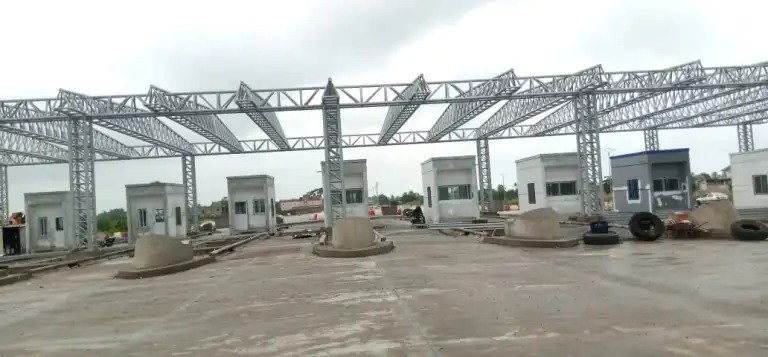
In detail, the conversion of the Avépozo-Aného road section into a dual-carriageway (30 km) is nearly complete. Additionally, socio-economic infrastructures such as the Multifunctional Youth Center in Aného, the expansion of the Baguida market, and the rehabilitation of the health center in Agbodrafo have also been completed.
The AfDB and EU backed the project with €44.78 million and €20 million, respectively. Other financial backers include the West African Development Bank (BOAD), the Islamic Development Bank (IsDB), and the Global Environment Facility.
The rehabilitation works are scheduled to be completed next year.
Esaïe Edoh

